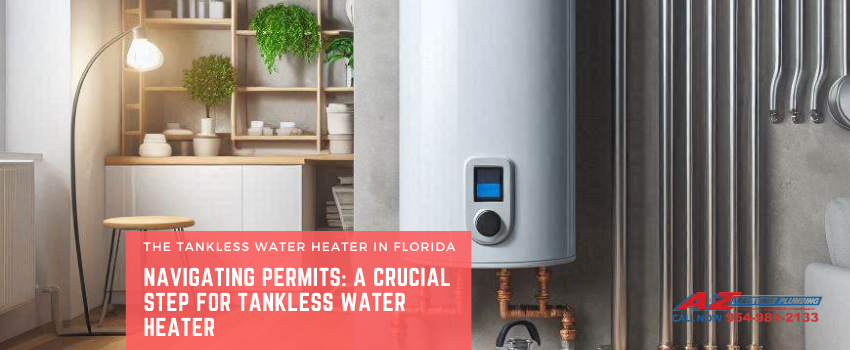
In the world of residential plumbing, few upgrades hold as much promise as the installation of a tankless water heater. Renowned for their energy efficiency, space-saving design, and endless hot water supply, tankless water heaters are increasingly becoming the go-to choice for homeowners seeking to enhance their comfort while reducing their environmental footprint. However, before embarking on this transformative upgrade, it’s crucial for Florida residents to understand the role of permits in the installation process.
Permitting is a vital step in any significant home improvement project, including tankless water heater installation. While the prospect of navigating through bureaucratic procedures may seem daunting, obtaining the necessary permits is not just a legal obligation but also a mark of quality and safety assurance for homeowners.
In the state of Florida, regulations regarding permits for tankless water heater installations vary depending on local jurisdictions. Generally, most areas require permits for the installation or replacement of water heaters, regardless of whether they are tankless or traditional tank-style heaters. These regulations are in place to ensure that installations meet building codes, safety standards, and environmental requirements.
So, is permitting necessary for the installation of a tankless water heater? The short answer is yes. Permitting provides oversight throughout the installation process, ensuring that qualified professionals carry out the work according to industry standards. By obtaining permits, homeowners also protect themselves from potential liabilities associated with substandard installations.
One of the primary reasons permitting is necessary for tankless water heater installation is to ensure compliance with building codes. Building codes are in place to safeguard the structural integrity of homes and the safety of occupants. These codes dictate various aspects of installation, including proper venting, electrical connections, and plumbing configurations. Failure to adhere to these codes can result in hazards such as gas leaks, electrical malfunctions, or water damage.
Moreover, permits facilitate inspections by local authorities or certified inspectors. These inspections serve as checkpoints to verify that the installation meets all applicable codes and standards. Inspectors evaluate factors such as proper sizing, adequate clearances, and secure anchoring of the unit. Through inspections, homeowners gain peace of mind knowing that their investment is installed correctly and safely.
Additionally, obtaining permits for tankless water heater installation can have long-term benefits for homeowners. Many jurisdictions offer incentives, rebates, or tax credits for energy-efficient home upgrades, including tankless water heaters. To qualify for these incentives, homeowners typically need to provide proof of permit and inspection compliance.
In conclusion, while the prospect of navigating permits may seem daunting, it is an essential step for homeowners considering the installation of a tankless water heater in Florida. Permits ensure compliance with building codes, facilitate inspections, and may even lead to cost-saving incentives. By partnering with reputable plumbing professionals who understand local regulations, homeowners can embark on their tankless water heater journey with confidence, knowing that their investment is backed by safety, quality, and adherence to standards.






